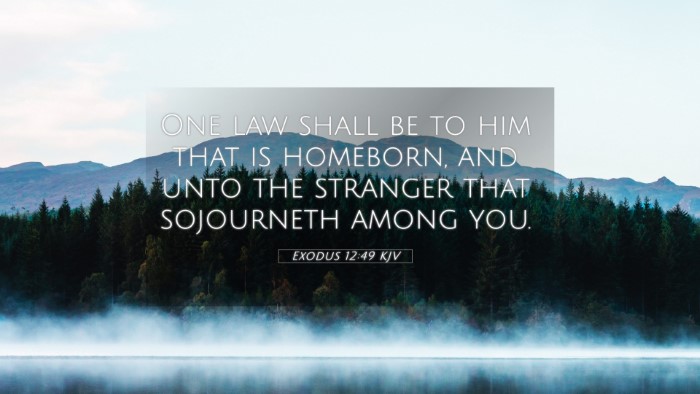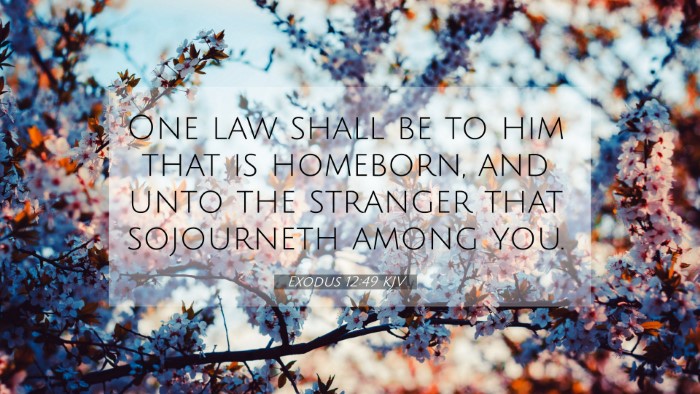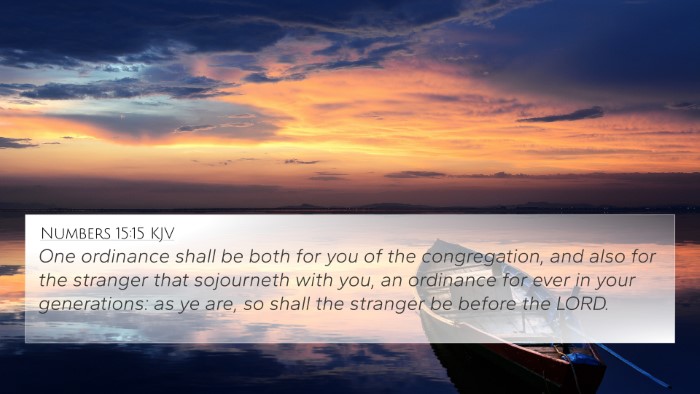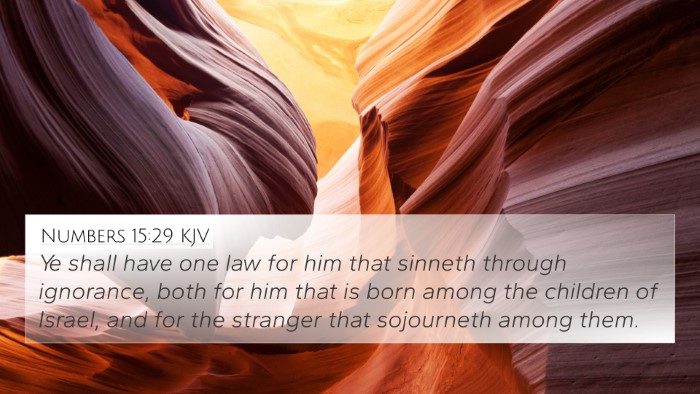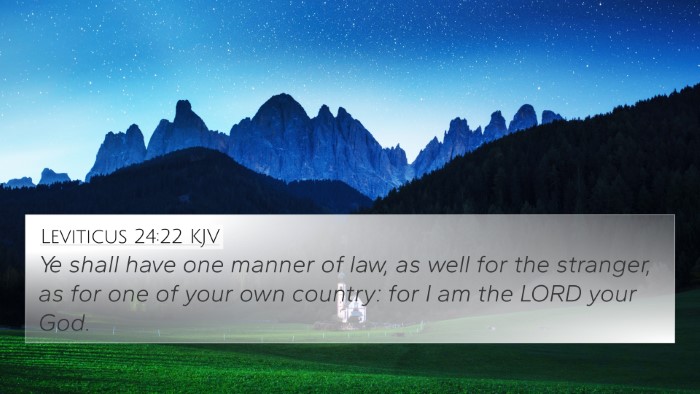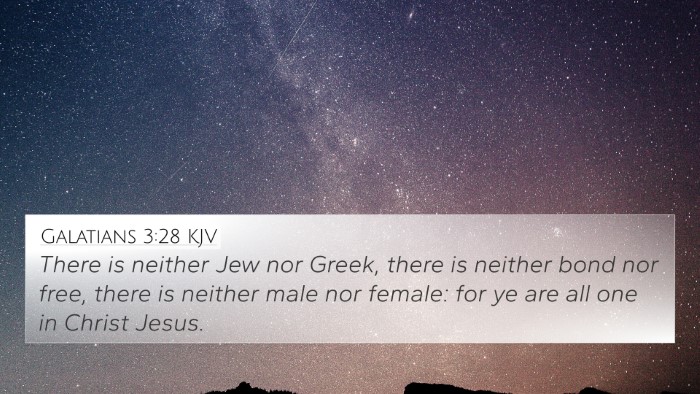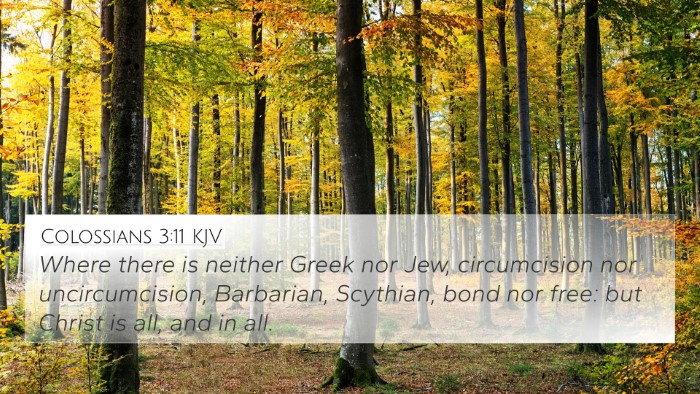Understanding Exodus 12:49
Exodus 12:49 reads, “There shall be one law for the native and the stranger who sojourns among you.” This verse highlights the essential concept of equality before the law in the community of Israel, signifying that God's commandments apply universally without distinction between individuals based on their nationality or origin.
Commentary Insights
Matthew Henry's Commentary:
Henry emphasizes the inclusivity of God's covenant, where both native Israelites and foreign residents are given the same legal responsibilities and duties under the law. He notes that this principle reflects God’s character of fairness and justice, and that His laws are intended for all people, regardless of their background.
Albert Barnes' Notes:
Barnes elaborates on the significance of the law being the same for the native and the foreigner, suggesting that it fosters unity within the community. He points out that this directive was significant for the Israelites as they formed their identity as a nation under God's authority, indicating that God recognizes no favoritism and desires all to adhere to His statutes.
Adam Clarke's Commentary:
Clarke remarks on the clarity that God provided regarding the treatment of outsiders, noting that this verse sets a precedent for future interactions between Israelites and Gentiles. He suggests that it reflects God's intention for an inclusive community, preparing for the eventual Gospel message that would extend to all nations.
Thematic Connections
This verse serves as a key to understanding several major biblical themes, particularly:
- Divine Justice: God's law applies to everyone equally, which establishes a foundation for justice.
- Community and Inclusion: The invitation for strangers to be treated as equals encourages a sense of belonging.
- Identity as God’s People: Unifying laws help shape the collective identity of the Israelites.
Bible Verse Cross-References
Exodus 12:49 can be cross-referenced with the following scriptures:
- Leviticus 24:22: "You shall have the same rule for the sojourner and for the native, for I am the Lord your God."
- Numbers 15:15-16: "For all who are native shall do these things in this way, in presenting a food offering, with a pleasing aroma to the Lord." This emphasizes universality in worship and law.
- Deuteronomy 1:16-17: "And I charged your judges at that time, Hear the cases between your brothers, and judge righteously between a man and his brother or the alien who is with him."
- Isaiah 56:6-7: "And the foreigners who join themselves to the Lord, to minister to him, to love the name of the Lord, and to be his servants..." highlighting inclusivity in worship.
- Acts 10:34-35: "Truly I understand that God shows no partiality, but in every nation anyone who fears him and does what is right is acceptable to him."
- Romans 2:9-11: "There will be tribulation and distress for every human being who does evil, the Jew first and also the Greek. For God shows no partiality."
- Galatians 3:28: "There is neither Jew nor Greek, slave nor free, male nor female, for you are all one in Christ Jesus." This connects the Old Testament principle to New Testament theology.
Conclusion
The message of Exodus 12:49 profoundly impacts the understanding of equality, justice, and community within the biblical framework. The inclusive nature of God's law reinforces the idea that His commandments transcend cultural and ethnic boundaries. This verse connects deeply with the overarching biblical narrative of God's love and justice, serving as a reminder of our communal responsibilities.
Additional Study Insights
For those looking to engage in Bible cross-referencing, here are some tools and methods:
- Utilizing a Bible Concordance: A useful tool to find related verses and themes.
- Cross-reference Bible study methods: Systematic comparison of scriptures to uncover themes.
- Bible chain references: Following thematic links throughout the Bible for interconnected understanding.

